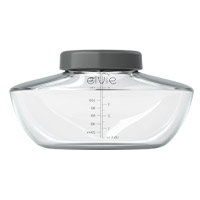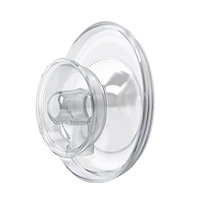Motherhood is a wonderfully complex rollercoaster of emotions. We all know it’s possible to go from ‘sleep-deprived stressed’ to ‘heart-bursting adoration’ in a matter of moments. But one of the most common feelings that tug on our heartstrings daily, is guilt. ‘Mom Guilt’ has become a phrase synonymous with the constant juggling act that mothers engage in. It’s a worryingly familiar (and annoyingly gendered) term, that you’ll find mentioned in every mother and baby magazine and podcast out there - and something even the future Queen of England can’t escape. But why are we guilty of feeling so guilty? And what can we do to stop it?
What Fuels Our Mum Guilt
Back in 2017, a survey of over 900 mothers revealed that 78% revealed they felt guilty, with 68% saying they felt guilt at least one once or twice a day. The same survey also asked participants what was the last thing that made them feel guilty. The answers were broad – and seriously relatable. Whether it was trying to balance motherhood and a career (“I had to miss a school play because of work”) to financial strains (“I couldn’t afford to buy many Christmas presents this year”), or especially taking a moment for ourselves, no matter how small (“Having some time out after cleaning”) – the list is endless. From breastfeeding to returning to work, it can often feel like every decision involved in motherhood comes with a caveat – whatever you do, you’re doing the wrong thing.
Guilt also thrives on comparisons. So, even if we’re confident that we’ve made the best decision for our family, we then start to question whether we’re doing it right or doing enough. Feeling pleased with yourself that you managed to smash that meeting and still make it to school for the bake sale? Well, Sarah’s mother is running an international fashion brand and still had time to make a cake that could rival any Bake Off showstopper. You know the drill.
A Feminist Issue
What’s interesting is that while Mom Guilt is a phrase that rolls off the tongue, ‘Parent Guilt’ is a less commonly used idiom. That’s not to say that Dad’s don’t feel guilty about spending enough time with their children. A survey of US fathers found that 63% of working dads wish they could quit their 9-5 and stay at home with their kids, but both biology and our patriarchal society are geared towards making women feel more guilty than men – so it makes sense that this seeps into our approach to parenting.
For Prarthana Rao, a life coach specialising in Mom Guilt, the systemic misogyny of gender roles can’t be ignored. “In many cases, Mom Guilt is is a manifestation of transgenerational trauma. It's the symptoms or behaviours we hold, which are caused by the experiences of the generations before us,” she explains. “It is possible that what we feel is a result of centuries of patriarchy, misogyny and women being treated as mere baby-makers. This deep-rooted belief can often translate to a mindset that tells you that if you aren’t bending over backwards for your children, then somehow you are not a fit mother. If you are riddled with guilt, know that it may not be your burden to carry at all – but something all women throughout time have been conditioned to feel.”
Pre-Mom Guilt
Sometimes this sense of guilt can start even before you technically become a mother. This is something Prathana sees time and time again with her coaching clients. “Guilt often begins way before the children arrive and especially during pregnancy. It could be related to healthy eating, exercising the 'right' amount, resting enough, missing an NCT class or working right until your due date,” she says.
For women who have experienced a difficult fertility journey or baby loss, ‘guilt’ is one of the most common emotional threads that tie them together. Lina Chan is a mother of three and the founder of Parla, a digital health platform dedicated to supporting women on their fertility journey. Parla was created after Lina experienced her own challenging road to motherhood, so she understands all too well the guilt that can come with struggling to conceive.
“Women experience pregnancy, infertility, and loss both at a physical and emotional level – and guilt is very common. I think our society conditions women to feel like childbirth is "natural" to women and therefore should be something that comes easily to us. So, when it doesn't work the way we expect it to work, it's easy to feel guilty, even though more than 50% of subfertility factors are actually male,” she explains. “When it comes to baby loss, the feelings of guilt can be exacerbated. We carry the pregnancy, so, you can't stop yourself from asking questions like, 'did I eat the wrong thing? Did I run too fast? Maybe I shouldn't have climbed those steep stairs?' At Parla, we always try to help women understand that miscarriage is never their fault and not something they should feel guilty about – but it’s a hard mindset to shift."
Guilt in Lockdown
While Mom Guilt – in all its forms – is certainly not a modern phenomenon, it’s been supercharged this past year, thanks to COVID-19 induced restrictions. As the worlds of career and parenting collide around the kitchen table, mothers who are battling with school closures, tough WFH conditions and unsupportive employers are feeling more guilt than ever.
At the time of writing, Anna Whitehouse, (aka MotherPukka) is spearheading a campaign to ask the government for 10 days of paid care leave, to help support parents in this unsustainable situation. This campaign follows a survey she conducted with the Trade Union Congress, which received more than 55,000 responses from stressed and desperate Mums and Dads.
Both Lina and Prarthana are currently balancing homeschooling with running a business and have felt the pressure. "Lockdown as tripled my Mom Guilt, for sure,” says Lina. “I've had to play multiple roles – mom, teacher, wife, housecleaner, entrepreneur. It's so many many balls to juggle and it's impossible to give 100% to every single role. So, sometimes it's normal to feel like you're always failing on one of the fronts. I’m naturally a perfectionist and have had to let go of that, and just be ok with whatever we have been able to accomplish each day!”
The MotherPukka survey highlights the impact that this balancing act is having on our mental health – with exhaustion being one of the other key emotions felt by respondents, as well as guilt. “Almost all of my clients have reported that homeschooling while juggling the personal, domestic, and professional responsibilities has left many feeling off-kilter, overwhelmed, and even burnt out,” says Prarthana. “Like any other habit, this idea of creating space and time for yourself takes effort and practice – and is more important than ever right now.”
Give yourself a little love
As Prathana says, self-care is one of the keys to minimizing and managing Mom Guilt, during the lockdown and beyond. “Be gentle with yourself,” she advises. “When it comes to being a mother, you’re in it for the long haul. Therefore, cultivating a habit of self-care where you prioritize your own needs alongside those of your children is crucial if you want to nurture your wellbeing and prevent burnout.”
As mothers, we are often conditioned to feel like self-care is selfish, and feel guilty about taking much-needed me-time to recharge – before another load of washing or a long night of sleep training. But this is something we have to change if we want to break the Mom Guilt cycle.
Being a mom will always be a juggling act, but your own wellbeing should never drop off your list of priorities. When we’re feeling good we’re able to handle all the challenges life and motherhood throw our way and become better moms, partners and friends without even realizing it. So when you run yourself a bath tonight and lock the bathroom door for an hour of peace, you can finally do it guilt-free.











 7 minute read
7 minute read